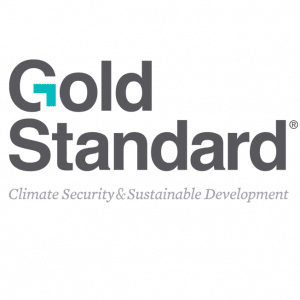-
What responsibility does Safe@Work take to reduce the climate effect?
-
Safe@Work has since the start in 2016 helped a great number of companies and thousands of employees to reduce their negative affect on the environment through a more climate smart way of driving and working. Together they have shown results to achieve a reduction of their emissions with more than 2 000 tons of carbon dioxide each year.
Educations from Safe@Work – Always 200 % climate compensated.
Since we are helping our clients to reduce their negative effect on the environment, then of course we should not be any worse! We at Safe@Work made the decision already at the start that all of our courses should be climate positive through a 200 % climate compensation. Climate compensation in general has often been a questioned way to reduce one´s emissions, but we have chosen to do our very best to contribute both globally and local where the help is needed the most.
1-kilogram carbon dioxide from an education = 2 kilograms compensated through contributions to local climate projects supported and certified by both the UN and Gold Standard. In that way we know that our effort will give documented effect both on climate as well as the living conditions in areas which needs most improvement.
2016 – 2018 we have chosen to contribute to 2 projects in Rwanda and Cambodja. Scroll down to read more about each project and the certifications from the UN and Gold Standard.
2019 – 2021 We will contibute to 3 Gold Standard-projects in Rwanda, Chad & Brazil. Scroll down to read more.
2019 - 2021 Solar Cooking for Refugee Families in Chad
-
Tens of thousands of refugees from Darfur are offered the chance to vastly improve their life by using solar cookers. Having to venture outside of the camp to collect scarce firewood and the risk of being attacked or raped has been an everyday fear for women in the refugee camps in Eastern Chad
Since the start of the programme in 2005, 40.000 families in the refugee camps and the surrounding villages have been equipped with solar cookers made out of carton and aluminium foil that, when folded in a semi-parabolic form can be used to heat water and cook entire meals. Due to the omnipresence of sun in this region, the cooker can be used 330 days out of the year, thus almost completely eliminating the need for firewood.
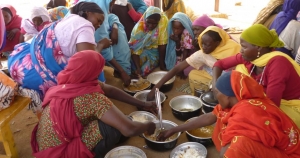
-
- Ensures safety: More than 50,000 women and girls that don’t have to risk their lives searching for firewood outside the camps.
- Produces clean energy: Average of 20,000 tons of CO2 equivalent greenhouse gases saved annually by the project
- Slows down deforestation: More than 50% of the local vegetation saved
- Empowers Women: Hundreds of new jobs for women in the camps, development of skills on how to manufacture their own solar cookers and how to manage and track distribution
- Generates employment: A team consisting of around 20 women and few men per camp is responsible for the correct assembly, distribution and supervision
2019 - 2021 Safe Water Access in Rwanda
-
CO2balance works with local groups and NGOs in Rwanda to deliver clean, safe water by identifying and rehabilitating broken-down boreholes. An ongoing maintenance programme, alongside water sanitation and hygiene training, ensures a safe and reliable community water supply is maintained.
Each of the 12 micro-projects under this programme prevent 10,000 tons of CO2 equivalent emissions.
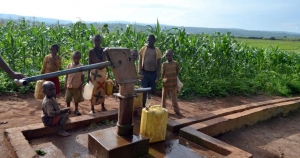
What this means for local people.
As well as reducing emissions and helping our climate, this project provides:
-
- A supply of clean safe water for poor communities
- Reduced incidence of waterborne diseases and diarrhoea, lifting the burden of disease on people’s livelihoods
- Less time spent collecting water (traditional sources, such as open wells and rivers, are often far away and highly seasonal)
- Reduced expenditure on wood fuel, leaving money free for other household expenses
- Reduced pressure on local wildlife and ecosystems due to reduced deforestation
2019 - 2021 Balsas Renewable Energy Project
-
In Brazil, deforestation is the largest source of greenhouse gas emissions in the country, and illegal logging for firewood is a key component of this issue. The Balsas Renewable Energy Project combats deforestation and climate change by replacing a Brazilian factory’s primary fuel source, deforested wood, with renewable energy.
For decades, the Balsas factory used deforested native wood to fire its kilns. Today, 100% of its fuel comes from local agricultural waste: rice husks. The project transforms this biomass, which would have been inappropriately discarded otherwise, into usable fuel. The fuel switch also benefits the employee’s health and working conditions in a number of ways.
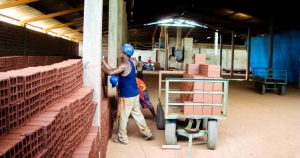
-
- About 4,000 tons per year of waste (rice husks) diverted from inadequate destination and reintroduced in the production process
- Improved working conditions to employees (45 employees)
- Housing for employees’ families with utility costs included (about 60 people housed)
- Prevents deforestation - 980ha of forest saved in the course of 10 years, the equivalent to 784 soccer pitches
- Prevents GHG emissions - 5,688t of CO2e avoided per year.
2016 - 2018 Cleaner, safer water in Cambodja
-
In Cambodia 10 000 people dies each year due to contaminated water. For most habitants the solution has been to boil the water on wood-fired ovens. The ovens themselves creates a poisonous smoke and has resulted in a contaminated indoor climate. This Gold Standard certified project has helped almost 2 million habitants to clean drinking water through ceramic water filters. Production and distribution is handled locally and creates work opportunities for the locals.
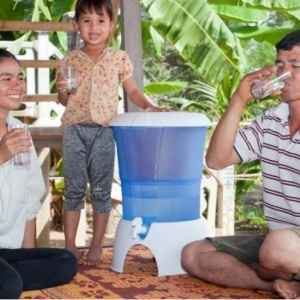
-
- National Energy Globe Award (2013) * Ashden Award (2012)
- GIZ IMPACT Business Award (2011)
- An annual saving of 95,000 tons of CO2
- Over 400,000 filters distributed
- An annual saving of 49,000 tons of wood
2016 - 2018 Cleaner cooking stoves in Rwanda
-
This Gold Standard certified project is consisting of 14 smaller projects which all helps the locals in Rwanda through energy effective stoves produced locally. Beside their climate benefits and increased work opportunities they contribute to less toxic smoke and pollutions in local homes.
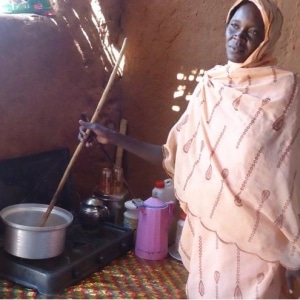
-
- Emissions corresponding to 140,000 tons of CO2 have been prevented
- More than 22,000 families and 33,000 children have been positively affected by the project
- The decomposition of trees corresponding to 75,000 tons has been prevented
CDM - Clean Development Mechanism
-
An important condition for us when we choose to climate compensate was for it to be done in credible projects with a documented positive climate effect. Therefore, we choose to contribute in UN-certified projects with long term goals towards reduced emissions and a positive effect on sustainable development with positive local effects on both social and economic situation.
Each CDM-project is constantly reviewed by accredited auditors where the actual emission reduction is shown. The project is thereafter certified by the UN with a CER. (Certified Emission Reduction) The certificates are a proof that the supplier has carried out the promised climate effect. All CDM-projects lives up to the criteria of the Kyoto protocol.

Gold Standard
-
We have also decided that the projects we support are to be certified accordingly to the Gold Standard which is the highest and most accepted certification for CDM-projects. Gold Standard is a non-profit organisation and founded 2003 by WWF among others. The standard is endorced by both international environment organizations and the UN. To become a Gold standard project, it is not enough to be able to show a positive climate effect, the project also has to contribute to at least three of UNs global sustainable development goals. For example, the projects may work to increase equality, create work opportunities and contribute to increased health in the local environment.
